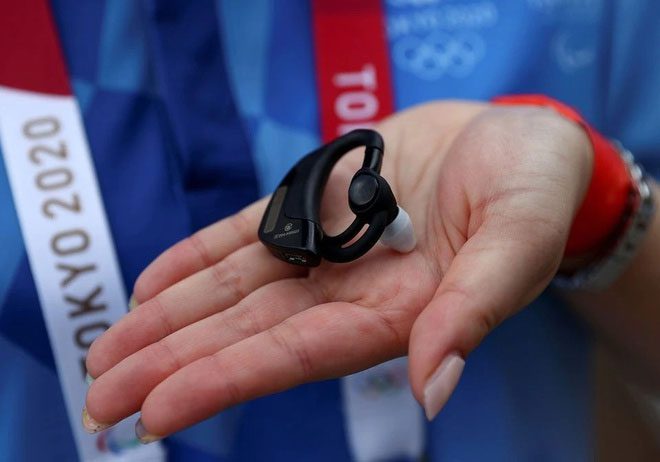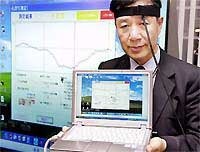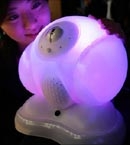The headphones can monitor the heart rate and temperature of the wearer and provide warnings for the risk of heat stroke at the Tokyo Olympics.
In addition to the complicated situation of the Covid-19 pandemic, athletes, officials, and staff at the Tokyo Olympics also face another threat: high temperatures.
To prevent heat stroke, staff at 14 competition venues are using a special pair of headphones to send heart rate and body temperature metrics to the cloud. An algorithm is applied to combine the personal data sent with environmental factors to assess the risk of heat stroke.
The system will send alerts to those at high risk of heat stroke through a mobile application. The notifications also provide other preventive measures such as resting and increasing fluid intake.

Headphones monitoring heart rate and temperature at the Tokyo Olympics. (Photo: Reuters).
“I think this solution is really useful because it sends alerts even when I don’t realize I’m showing signs of heat stroke,” said a 21-year-old guide at the Japan National Stadium.
Alibaba Cloud, the global partner of the Olympics, shared that they have been working with the organizers for many years to create this device. Selina Yuan, General Manager of the International Business Division at Alibaba Cloud, stated that climate change poses a significant challenge for outdoor sporting events.
“We are trying to use our cloud computing technology to accelerate the digital transformation,” Ms. Yuan shared.
The cloud computing system has implemented measures to improve competition conditions, such as moving some outdoor events to cooler times of the day or relocating the marathon to the cooler northern region of Hokkaido. Additionally, the organizers have added misting stations for horses and equipped referees with cooling vests.
A study last year by Game Adviser found that Tokyo has the highest average temperature and rainfall among host cities of the Olympics since 1984. During the Tokyo Olympics, a Russian archer collapsed due to the heat. Skateboarding athletes also complained that the competition conditions were stifling at 9 a.m. due to temperatures exceeding 30 degrees Celsius and high humidity.
The Tokyo 2020 Olympic organizers stated that the system serves as a useful tool for warning and maintaining the health of staff participating in the event.




















































